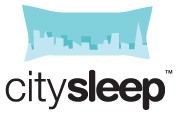When a new calendar year starts the first marketing assessment we make as a hotel operator is how can we increase the number of room nights and drive the revenue up and bring the costs down.
Every year brings with it new challenges to consider and new marketing and revenue management strategies and tactics to apply, and while a traditional approach to your marketing does produce results, at the start of the year it’s important to take into account any new emerging trends and consider what you can do differently or more diligently to get the results you desire.
So we have put together twelve tactics you should be considering for your 2018 digital marketing plan:
1. Make personalization work for those that want it
Guests know that we have enough insights on them that we could offer a more personalized experience. There is no excuse not to listen to a guest’s preferences and meet their needs. Data can be retrieved from your website and direct booking engine, guest comments and from those moments of truth when you do get the chance to chat with your guests. Knowledge of your guests booking behavior, their purchase habits, and preferences will go a long way to making guests happy and loyal.
In an ideal world, in the hospitality business we would like to think we have the time for one-to-one conversations with every guest to build trust and empathy. To a great extent with so much pressure on cost it is often cost prohibitive to have too high a staff ratio and sometimes guests actually prefer to avoid attention, and enjoy their stay with the minimum of interaction.
But the more you understand about your customers needs the more focus you can bring to developing the right message and customer service approach to keep your guests satisfied and loyal.
2. Treat your customers well and get to know them
Happy customers tell 4 to 6 people about their experience. So that’s a way to significantly influence positive word of mouth.
Most guests appreciate a genuine approach and having contact with somebody who can represent the business and make decisions. It is always a nice touch if your staff can address guests by name, remembering to tell them their name at appropriate times.
The path to customer satisfaction can start with a simple smile but when you greet a customer, there has to be more depth to how you engage, listen and react to their requests.
It is also important to keep in perspective that the attitude of the customer will be dependent to some extent on the type of property that they are staying. A customer booking a stay at a beach side resort has different expectations of a guest experience compared for example to a guest staying at an airport hotel. So you need to get in perspective what the customer's expectations are and how you meet and exceed them.
According to Bain and Co., a 5% increase in customer retention can increase a company’s profitability by 75%.
Gartner Group statistics tell us that 80% of your company’s future revenue will come from just 20% of your existing customers.
3. Recognise that Social Selling is more social than it is selling
There are already many property owners who have mastered how to leverage their social media networks to enhance and develop their positioning and have become early adopters of social selling.
Social media has developed for businesses into a very effective platform to show off products, especially within travel and hospitality. There is an inherent need as consumers to “look” before we “book” and only stay at those locations that have the best reviews.
Social media networks tend to be where consumers are most active, so it makes sense that you should focus your attention on creating a message that resonates with your favorite social networks.
To start your journey into social selling an important first step is to decide which social media platform you want to focus on. Questions that you need to ask yourself are whether the channel is appropriate for your property and is this where your potential customers are located.
Plus of course you do need to have the time and resources to make this a long term commitment, for social media to work you need to engage and converse with your followers – which takes time and practice.
And Facebook isn’t just a social network. From an advertising perspective, you should treat Facebook the same way you do your other marketing efforts. With 2 billion monthly active users, the opportunity to reach current and potential customers is vast.
4. The SEO (Search Engine Optimization) Factor
You should always integrate SEO into your marketing program to ensure your website can be found organically, and those visitors that do arrive, are to a greater extent better qualified and ready to buy.
SEO is about increasing the visibility of your website and helping you to attract and keep visitors engaged and interested in what they read and experience.
SEO forces you to optimize how your website is seen by both search engines and visitors and give structure to your content, and make it easy to follow the website flow and scan information.
Search engines also read content in context so focusing on high quality content that is relevant to the search query means better results for optimisation and sales conversions.
5. Never believe that your target market is everybody
The reason this is a bad idea is because as customers we all have such different needs and desires for what we are looking for in a hotel stay. There really is no such thing as the average customer.
The path-to-purchase is so complex it’s impossible to use a “one size fits all” approach in the hope that a generic message is going to get through all that advertising noise that is out there.
It makes sense to focus on a specific customer segment, prospective customers who were likely to want your property do so because it addresses a specific need. So use your marketing efforts to focus on a small targeted audience to achieve better results rather than trying to please everybody.
6. The smartphone revolution
Mobile is now one of the strongest marketplaces when it comes to booking and researching travel arrangements.
According to Google more than half of smartphone users turn to their device in I-want-to-go moments and most often, they’re seeking out discounts and researching activities to do before and during their trip.
Guests often use multiple devices, swapping smartphones for tablets for computers. But make sure that you website site is responsive and respects the needs of the user, making sure it is a seamless user experience no matter the device they use.
7. Using email as a trigger to customer behavior
Email allows for direct contact, targeting, and a strategic approach to distributing your content.
The ideal situation is that with each and every touch point with a customer along their buying journey each subsequent message builds on the customer’s actions. Email offers transparency over how buyers behave, what they open, which device they use, and which offers they return to or ignore.
Realistically most new contacts in your database won’t always be looking to buy; they may be just starting out on their buying journey and are more likely to be doing research and information gathering. Email is one of the most effective ways for you to nurture and assess these prospective customers as they pass through the different stages of your sales funnel.
8. A digital journey
Your customers have access to so much information now at the click of a mouse that they filter so much of what you say as a business and rely to a great extent on the advice and recommendations that they receive from friends.
The path to purchase or buying journey from start to finish is rarely linear for a customer nowadays - but as a business you need to adopt a digital strategy to be able to communicate with an audience that consumes so much information online.
Digitization has enabled and empowered buyers to change how they consume the information they need to make a buying decision. Businesses have had to convert information into a digital format and adopt a new digital approach.
Digital transformation can be a difficult task to take on, so ask yourself the following to see if your business is ready to start the journey:
- People - do you have the right resources or skill sets?
- Customers - do you know who they are and their digital behaviour?
- Content marketing – do you know what content your target audience is attracted by and searching for?
- Systems - what do you have available and how can you use technology more effectively to help you grow?
9. Organize your content marketing
The key to an effective digital marketing strategy is to plan the production and distribution of your content in advance.
There comes a time when for a prospective customer to engage with you they want some form of validation that as a business you are trustworthy and that your property meets their needs. And the quality and relevance of the content you produce can reinforce and verify that your property will be a good choice.
Content has a number of different roles to play:
- Content needs to be able to encourage visitors to your site to get engaged, read, return and buy.
- Content needs to get visitors to undertake certain actions, for example leave an email address as you subscribe for a newsletter, download some interesting information or may be ask a question.
- And content should fuel certain emotional objectives to get the prospective buyer on your side and wanting to book with you.
At the same time you plan your content you also need to have insight to what the visitors to your website are looking for, what challenge or opportunity are they trying to solve? This allows you to identify particular pain or gain points that they will be looking to address - which you will use as keywords, titles and content drivers as a magnet to attract more guests to book with you.
10. How to turn "lookers into bookers"
Most of us would agree that a customer review can hold a lot influence on how a guest makes a buying decision, and there’s plenty of research to support that especially when it comes to booking a hotel room.
A recent TripAdvisor® study revealed that more than half of travelers won’t book a hotel until they have read reviews because they believe it helps them pick the right hotel.
While collecting feedback can be challenging, it does help to determine priority areas for improvement in your property. According a study from TrustYou the link between reviews and hotel conversion rates and pricing shows travelers are almost four times more likely to choose a hotel with higher review scores when the prices are the same, and 76 percent of travelers are willing to pay more for a hotel with higher review scores.
It’s clear that online reviews play an important part in a guest’s decision making process when choosing where to stay, so as hotel operators we need to be accumulating and responding to these reviews and making them readily available online.
Reviews are also a free way to assess how your property is performing. They highlight what’s going well and where improvements can be made.
11. Do you have a compelling PR story?
Storytelling is a powerful sales tool to the right audience. Use the story about your hotel to differentiate yourself from the competition. Use the emotional attachment that comes with your story to drive your brand values and get a return on your public relations efforts.
In a world where “content marketing rules”, buyers are more likely to trust third party sources of information than your own. To build up trust and credibility your content marketing efforts can help build trust by providing value rather than selling.
And a story is how customers we remember things. With up to 285 pieces of content a day looked at by your customers you need some kind of emotional attachment to rise above the rest of the marketing noise.
12. A great direct online booking experience
Customer satisfaction is affected by your digital online presence. With customers getting their first information about hotels online, property owners can now no longer ignore the need for an integrated online booking engine to be able to control the overall booking experience for their property.
HappyBooking have always focused on creating a user-friendly property management system based in the cloud that can help property owners improve their revenue performance with a direct booking engine, generate more profit by lowering commission costs and reducing admin time. So take a quick tour to see how it works - click here.
Take Away
HappyBooking is first and foremost a property management system. That means they help you with the boring admin and automate tedious tasks giving you more time to focus on your guests. On average HappyBooking customers can get back up to 10 hours per week – think what you could do with that extra time!
Our guest blogger is John Kennedy.
John is a hospitality consultant, dedicated to helping increase revenue through marketing, revenue management and efficient operations. www.kennedyandersson.com
Image source: www.freepik.com



